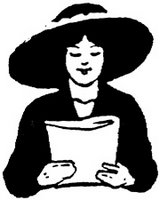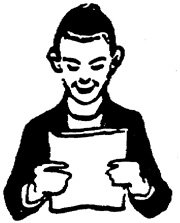
 Rebel Girl, along with Red Emma, and pulling Limber Lou in his little red wagon, joined thousands of others marking the Day Without An Immigrant in Santa Ana yesterday.
Rebel Girl, along with Red Emma, and pulling Limber Lou in his little red wagon, joined thousands of others marking the Day Without An Immigrant in Santa Ana yesterday. You should have been there.
Maybe you were.
Earlier that day, on her morning drive to the college, Rebel Girl was struck by the sight of the Sand Canyon strawberry fields sans workers—rows and rows of green plants and red berries, but nary a worker crouched among them. Closer inspection revealed that the gates were locked, the pallets stacked, the cars that usually park in the dirt missing.
The asphalt and construction crews raising the nearby new community of Portola Springs seemed thinned as well.

It took her fifteen minutes to drive from the college to Santa Ana, to rendezvous with Red and Lou and a visiting friend from Germany. Five more minutes to get to downtown, locate parking, and feed the meter its diet of quarters.
The sidewalks were full of white-shirted people but businesses were closed. Cars drove by with horns blaring and flags flying. The spirit was festive, celebratory, proud.
May Day had come to Santa Ana.
Rebel Girl reminded Red of the time they arrived in the Greek port city of Patras on May Day—there, a national holiday with long roots in both labor and pagan traditions. Wreaths of yellow flowers adorned the doors—months later, in the heat of summer, they’d be tossed on bonfires to commemorate St. John’s Day. Families picnicked, paraded.
 Reb and Red found dinner in one of the few restaurants open for business—someone had to make sure the sailors got to eat, the owner explained. —Sailors and wayward travelers like us. We feasted—broad beans in tomato dill sauce, stuffed peppers, fresh Greek salad, tasziki, good bread, cold restina. The owner didn’t believe us when we told him that May Day wasn’t celebrated in the U.S. “But it began there,” he said, clearly a Greek who knew his history and ours.
Reb and Red found dinner in one of the few restaurants open for business—someone had to make sure the sailors got to eat, the owner explained. —Sailors and wayward travelers like us. We feasted—broad beans in tomato dill sauce, stuffed peppers, fresh Greek salad, tasziki, good bread, cold restina. The owner didn’t believe us when we told him that May Day wasn’t celebrated in the U.S. “But it began there,” he said, clearly a Greek who knew his history and ours. Yes, we agreed, but most Americans don’t know that and, somewhere along the way, someone designated a day in September to honor labor, allowing a nation to begin to forget the American anarchists and Haymarket while the rest of the world kept remembering. At the end, I think he still didn’t believe us.
That was ten years ago.
In Santa Ana, over 10,000 gathered in the Plaza of the Flags to hear speeches, to see each other, to stand together and be counted by whoever was doing the counting. It was impressive: families; mothers with strollers or babes in arms; beaming children riding on their fathers’ shoulders; working people wearing t-shirts emblazoned with their union logos or, more often, their own handwritten messages; working people carrying the tools of their trade: tool belts, spades, rakes, brooms, mops. Flags fluttered above all. Lou sat in his wagon, waving his banner of choice: the Jolly Roger.
Our German friend commented that he never imagined being at a rally with so many American flags. But where, he asked, were all the white people?
He had a point.
There were few. But that’s a topic for another essay.
 As the march began to move out, I looked up. In the wide set branches of a tree, sat a broad-chested young man, in clean, well-pressed khakis and a white button-down shirt. His tie was red, white and blue. His hair was clipped close to his head. His brown face was gleaming with sweat. He shouted down at us, urging us forward, like some figure out of Greek mythology.
As the march began to move out, I looked up. In the wide set branches of a tree, sat a broad-chested young man, in clean, well-pressed khakis and a white button-down shirt. His tie was red, white and blue. His hair was clipped close to his head. His brown face was gleaming with sweat. He shouted down at us, urging us forward, like some figure out of Greek mythology.At the plaza where we paused for speeches in English and Spanish, we met up with three colleagues from Saddleback. We congratulated each other on being there as it was clearly the place to be. Solidarity, indeed.
Media reports cited counter protesters, but I saw only one, a single fellow, singularly unhappy, standing there with his own bitter hand-lettered sign. He had, Red noted, obviously more problems than one.
The march continued, winding its way around the Civic Center. At the corner of 901 Civic Center Drive, the crowd looked up and noticed a group of men on the roof, arms crossed, watching us. Clearly business men, they had taken off their suit jackets to better bear the heat, but their ties remained tight around their necks, their shirts tucked into their belted trousers. Standing there, arms crossed, they watched us, the slowly moving sea of white shirts and red, white and blue flags. We started waving, calling out “Hello!” “Hola!” No reaction. We shouted louder. Nothing. We called, “Come join us!” and realized how absurd that request was, but still, we repeated it. “Hello!” Come join us!”
One fellow finally waved, but then backed away, ashamed either by his reaction or, more likely, because he was making fun of our own waving hands and had to back away to chuckle with his pals.
On the way home, hungry and realizing that the sink was full of dishes, we decided to stop at Taco Mesa for our favorite quick dinner: beans, rice, grilled calamari tacos. Pulling into the parking lot, we realized our mistake: Taco Mesa was closed.
What were we thinking? It was May Day!





4 comments:
There sure was a lot less traffic on the 91.
Our world is a lot more complex than traffic patterns. Ask my sister's boyfriend who works at the Port of LA - vitually shut down on Monday.
I'm one of the white people who wasn't there. I don't know if it counts (probably not) but everything of me except my body was with the marchers.
And why are all the comments above anonymous?
Spirit counts, green whale!
Post a Comment